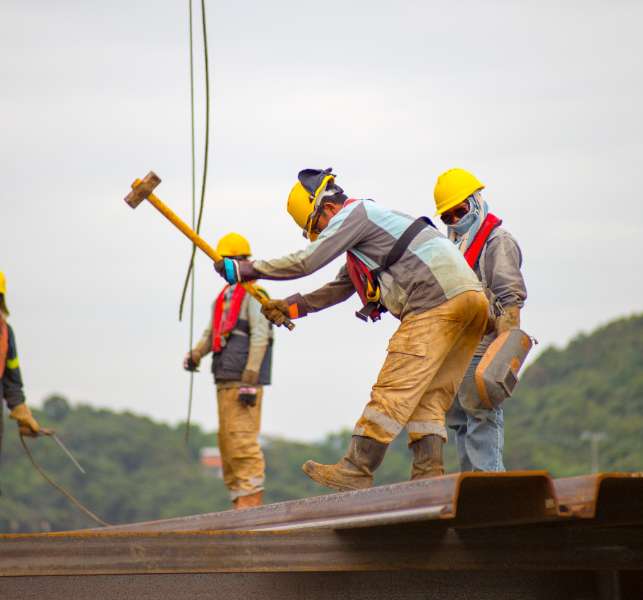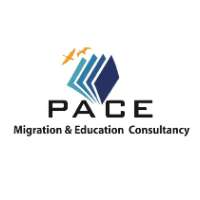If you’re thinking about studying as a way to get permanent residency in Australia or change your career, it’s worth considering which industries and/or occupations are likely to have good employment prospects in the future, and what kinds of skills will be in demand in the Australian labour market.
With a relatively complex immigration system, some hopeful migrants can find it difficult to identify a pathway to permanent resident status. One way to uncomplicate the process is to study a trade in Australia, which can lead to a recognised qualification, full-time work, and eventual eligibility for residency.
Here you can learn about the occupation and suitable courses that can lead you to PR in Australia.
Things You Need to Consider
To apply for a permanent residency in the land down under you need to first know about the Occupation list in demand often referred to PR course list in Australia. Few courses from the course list will be discussed later in this article.
But for now, these are the few points you need to consider before applying for a Temporary Graduate Visa (Graduate Work stream-18 months visa or Post-Study Workstream-24 months visa):
• You must fulfil the study requirement needed which is you should at least study in the country for a minimum duration of 2 years. The same might vary depending on the course you choose and the level of it. It also depends on whether it is a higher education course or a vocational study which leads to higher education.
• Within six months of your course completion you must apply for the Temporary Graduate Visa (subclass 485). If you have studied vocational education and training courses such as certificates up to Advanced Diploma courses the occupation must be listed on the MLTSSL (Medium and Long-term Strategic Skills List) for you to be eligible to apply for Graduate Work Stream. It is good to know that students who have studied higher education such as Bachelor or master’s degree will be eligible to apply for Post-Study Workstream.
• During your post-study job, your job description must match the job description available on ANZSCO. The same is a body named as Australia & New Zealand Standard Classification of Occupations (ANZSCO) that collects, analyse the occupations datum across government organizations and publishes it. The Department of Home Affairs (DOHA) uses this to capture each and every viable information from all the settlements, citizenships and all the other various types of visas in the same category.
• If you have one year of post-study work experience in Australia, then that is going to fetch your extra brownie points towards the application for permanent residency in the country. Most of the skills assessment authorities require at least one-year post-study work experience to attain a successful skills assessment outcome which is a common requirement for GSM (General Skills Migration) visa application in addition to the points test requirements.
• The course of study you plan to do must be registered under CRICOS. Migration agents in Australia such as Pace Migration can come in remarkably handy to provide you with further assistance if required. The migration agents will also help you in providing the list of the courses that will lead you to get a permanent residency in the country.
Now we will discuss a little more about the courses which will lead you to permanent residency in Australia. You can also get in touch with our MARA Registered Migration Consultant or our education agent to assist you with your study and migration plans.
From Trade Courses to Australian PR
1. Carpentry
Believe it or not, the carpentry sector is very important in Australia.
This profession is one of the most in-demand in the country. Along with the construction sector, it is one of the three most influential industries in the country, that creates high demand. In fact, it is expected to create up to 50,000 jobs in the next 5 years.
Studying this Trade Course of Carpentry will not only benefit you to secure a PR and good income but also it will open up an opportunity to become a Foreman or construction supervisor with a few years of experience.
2. Painting
The Painting and Decoration courses in Australia provide international students with a permanent residency pathway. It is projected that the construction industry will see 10.9% job growth in the future, which means that the Painting Trades Workers will be needed more than ever.
Studying Painting and Decoration in Australia will allow you to work in areas like timber staining, paint application, conventional spray painting, wallpapering, and more.
Additionally, as a decorator or a painter, you can work on the external or internal area of a building, both commercial and residential. Having a colour concept and various decorative ideas will provide you with a completive edge.
3. Plumbing
With 11.2% projected job growth by 2022 and above 5,500 occupations open for permanent residency, there is a huge demand for plumbers in Australia. The majority of plumbing work is carried out on commercial, domestic, and retail construction sites.
So if you study a plumbing course in one of the Australian VET (Vocational Education and Training) Institute, it will provide you with the work-based education and you will gain knowledge and skills that will complement your on-the-job training.
You will learn about plenty of things including roofing, water and sanitary services, drainage and blockage clearance, pipe fabrication and welding, gasfitting, mechanical services, reading plans, welding and pipe fabrication, and more. Once you graduate, you will have the confidence, skills, and experience to land a plumbing job. A large number of Foreman and construction supervisor happened to be a Plumber background with years of experience.
4. Automotive
Studying Automotive courses in Australia presents ample opportunities for international students who are passionate about becoming motor mechanics or automotive electricians.
There are several jobs for international students available in the automotive industry.
You can apply for a Motorcycle Mechanic, Automotive Electrician, Motor Mechanic or a Diesel Motor Mechanic.
5. Motor Mechanic
Also known as Automotive Light Mechanic.
Maintains, tests and repairs petrol engines and the mechanical parts of lightweight motor vehicles such as transmissions, suspension, steering and brakes. Registration or licensing may be required.
The Certificate III in Light Vehicle Mechanical Technology prepares students to perform a wide range of tasks in the light automotive industry. The Cert IV in Mechanical Diagnosis furthers these skills and provides students with in-depth knowledge of mechanics.
Throughout your studies, you will learn most aspects of motor mechanics including how to diagnose complex faults in light vehicle petrol engines, electronic spark ignition engine management systems and braking systems.
6. Electrician
Also known as Electrical Fitter.
Installs, tests, connects, commissions, maintains and modifies electrical equipment, wiring and control systems. Registration or licensing is required.
This qualification provides competencies to manufacture, fit, assemble, erect, operate, test, fault find, alter, repair electrical equipment and includes electrical wiring work only if that work is associated with assembling, maintaining, terminating or altering the wiring between electrical components within a plant or machinery. An electrical fitter is not authorised to install any electrical wiring systems within an electrical installation as prescribed by definitions contained in AS/NZS 3000.
7. Metal Fabricator
Also known as Boilermaker-Welder.
Marks off and fabricated structural steel and other metal stock to make or repair metal products and structures such as boilers and pressure vessels.
This course will give you the knowledge and skills required to work in the metals and engineering industry. You’ll learn to make and repair steel and other metal products and structures such as boilers and storage tanks, and develop industry-specific skills.
8. Air conditioning and refrigeration mechanic
This qualification defines the skills and knowledge required of heating, ventilation, air conditioning and refrigeration (HVAC/R) tradesperson within metal, engineering, manufacturing and associated industries. The qualification has been specifically developed for apprentices in the above trade. The qualification packaging has been developed on an assumption that competency will be developed through a combination of on and off-the-job learning strategies such as those delivered through a formal apprenticeship. The qualification may also be achieved through formal skills recognition assessment processes.
The skills associated with this qualification are intended to apply to a wide range HVAC/R work, including assembling, installing, maintaining and repairing industrial, commercial and domestic air conditioning and refrigeration systems and equipment.
9. Telecommunication
This qualification reflects the role of a new entrant into the telecommunications industry who can apply a range of competencies in a varied work context from installation to operation of telecommunications equipment and products.
The qualification has a generic outcome if no specialisation has been undertaken. When a specialisation has been selected then the qualification has one of the following outcomes:
Studying An Advanced Diploma of Network Telecommunication Engineering will allow you to work as- Telecommunication Technical Officer or Telecommunication Network Planner.
10. Building and Construction
If you are looking for permanent residency in Australia and build a career in construction, then pursuing a Building and Construction course is the right choice for you to gain Australia PR points. For instance, if you complete a Certificate III in Carpentry followed by a Diploma of Building and Construction it will not only help you to meet the 2 years study requirement but will also complement your skills set along with the future prospect of a supervisory role.
This course will give you the opportunity to put into practice and study several building techniques. Also, you will learn how to work in a construction site while dealing with safety standards, managing construction activities, and more.
11. Hospitality
Tourism is a booming industry in Australia that not only offers an exciting career but also allows international students to obtain permanent residency. So students with a passion for baking, cooking, or hotel management can take up a hospitality course in Australia, such as Commercial Cookery, and turn their dreams into reality.
If you are focusing on PR points for Hospitality in Australia, you can choose from a wide range of hospitality courses.
These courses will lead you to become a Baker, Chef, Pastry Cook, Bed and Breakfast Operator, Restaurant or Cafe Manager, Licensed Club Manager, Camping or Caravan Park Manager, Accommodation and Hospitality Manager, Hotel or Resort Manager, and much more. If you wish to become a Chef then Certificate IV in Commercial Cookery is sufficient from industry practice perspective however, it is important to note that from DOHA visa perspective you are required to a have a Diploma of Hospitality Management in addition to a Certificate IV of Commercial Cookery.
Conclusion
In conclusion, it would be wise to choose an occupation that is in high demand yet low supply in Australia so that securing a PR would be practical with fewer points compared to the occupation where high points would be required to be invited to apply for PR. It is evident on the Department of Home Affairs website that even with high points there are no guarantee to be invited for PR because of a large supply of certain professional occupation whereas most trade occupations are being invited to apply for PR with lower points.
Do you want to know more about trade courses that can qualify you for a PR in Australia? Contact Pace Migration now and call us on 0434 123 123 for a quick chat or email us on [email protected] to book an appointment to have a consultation with our migration agent.
Thanks for reading!
sources: australiavisa, questra, xlmigration, ozstudies



































